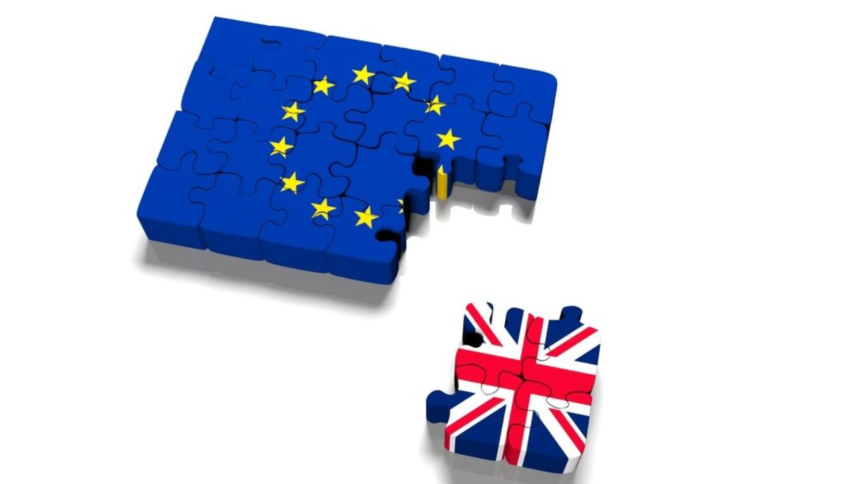Brexit, a portmanteau of “British” and “exit,” refers to the United Kingdom’s decision to leave the European Union (EU) following a 2016 referendum. The vote had significant implications for the UK’s political, economic, and social landscapes. For businesses, Brexit has meant navigating a new relationship with the EU, re-evaluating trade agreements, and adjusting to changing regulations.
Key Takeaways
- Brexit refers to the UK’s departure from the European Union, which has reshaped trade, regulations, and economic policies.
- The impact of Brexit on businesses includes new customs procedures, tariffs, and potential trade barriers with the EU.
- Example: UK businesses that previously traded seamlessly with the EU must now contend with customs declarations and potential delays.
What is Brexit?
Brexit is the shorthand term for the United Kingdom’s exit from the European Union, which was decided through a public referendum held on June 23, 2016. With 51.9% voting to leave, the result triggered a complex process of negotiations and policy changes that culminated in the UK formally leaving the EU on January 31, 2020, and entering a transition period until December 31, 2020.
Brexit had several immediate consequences, such as changes to laws, regulations, and trading relationships. The UK and EU needed to negotiate a new trade deal, determining how goods, services, and people would move between the two regions.
Brexit’s Economic Impact on Businesses
Brexit has had far-reaching economic consequences for businesses operating in or with the UK. Some of the major impacts include:
- Trade Barriers: Before Brexit, the UK enjoyed free trade with EU countries, benefiting from access to the European Single Market. After Brexit, the UK lost this privilege, and new barriers such as customs checks, import duties, and non-tariff barriers have been introduced. This has made cross-border trade more complicated and costly for UK businesses.
- Customs Procedures and Delays: As part of the separation from the EU, businesses that export goods to EU member states now face additional customs declarations and paperwork. This has led to delays at borders, which can disrupt supply chains and increase costs for businesses.
- Regulatory Divergence: The UK no longer follows EU regulations and standards, which creates the need for companies to adapt to different regulatory frameworks for trade, safety standards, and product requirements. This divergence can be particularly challenging for industries like manufacturing, food, and pharmaceuticals.
- Labour Mobility: Prior to Brexit, workers from EU countries could freely move to the UK and vice versa. However, after Brexit, the free movement of labor ended, making it harder for businesses in sectors such as agriculture, hospitality, and healthcare to find workers from EU countries.
- Currency Fluctuations: Brexit has also influenced currency markets, particularly the British pound. The uncertainty surrounding Brexit negotiations led to significant fluctuations in the value of the pound, which can affect the cost of imports and exports for businesses.
Brexit and Business Strategies
For businesses in the UK and across Europe, Brexit has required strategic adjustments. Here are some ways businesses have responded:
- Supply Chain Adjustments: Many UK businesses that depended on EU suppliers or customers had to rethink their supply chains. Some moved operations to the EU to continue benefiting from frictionless trade, while others diversified suppliers to avoid reliance on any single market.
- Tariff and Tax Considerations: Businesses have had to adjust their pricing strategies due to the introduction of tariffs and taxes on goods traded between the UK and EU. Understanding these costs has become an essential part of strategic planning for companies involved in international trade.
- Trade Agreements: To mitigate the negative effects of Brexit, the UK has sought new trade agreements with countries outside the EU. These agreements open up opportunities in new markets, but businesses need to keep track of the evolving international trade landscape.
- Workforce Strategy: With reduced access to EU labor, UK businesses have had to rethink their workforce strategies. This includes investing in training, offering competitive salaries, and recruiting workers from other parts of the world to fill talent gaps.
Example of Brexit’s Impact: The Automotive Industry
A notable example of Brexit’s impact can be seen in the automotive industry. The UK is home to major car manufacturers like Jaguar Land Rover and Mini. Prior to Brexit, these companies enjoyed seamless access to the EU market. Post-Brexit, they face new customs procedures and tariffs, which have increased costs for manufacturers and consumers alike. Additionally, manufacturers must now navigate different regulatory standards for safety, emissions, and product certification.
Some UK-based automakers have responded by shifting production to EU-based plants to maintain tariff-free access to the EU market. Others have streamlined operations to ensure continued compliance with both UK and EU regulations.
Opportunities in a Post-Brexit Economy
While Brexit has created many challenges, it has also opened up opportunities for businesses to innovate and adapt. For instance:
- New Trade Deals: With Brexit, the UK has the freedom to negotiate trade deals independently of the EU. This has led to new agreements with countries like Japan, Australia, and the United States, creating new markets for UK businesses.
- Regulatory Independence: The UK can now set its own regulations and standards, which allows businesses to tailor them to suit the needs of local industries rather than adhering to EU-wide rules.
- Growth in Digital and Tech: The post-Brexit environment has spurred growth in the digital and tech sectors. With fewer regulatory barriers, UK-based tech companies are well-positioned to innovate and lead in industries like AI, fintech, and cybersecurity.
Brexit has reshaped the economic landscape for businesses in the UK and beyond. The challenges posed by new trade barriers, regulatory divergence, and labor mobility restrictions are significant. However, Brexit also offers businesses the chance to explore new trade deals, adopt new regulatory approaches, and innovate in ways that were previously constrained by EU membership.
By understanding the implications of Brexit and adapting their strategies, businesses can not only survive but potentially thrive in a post-Brexit world.





